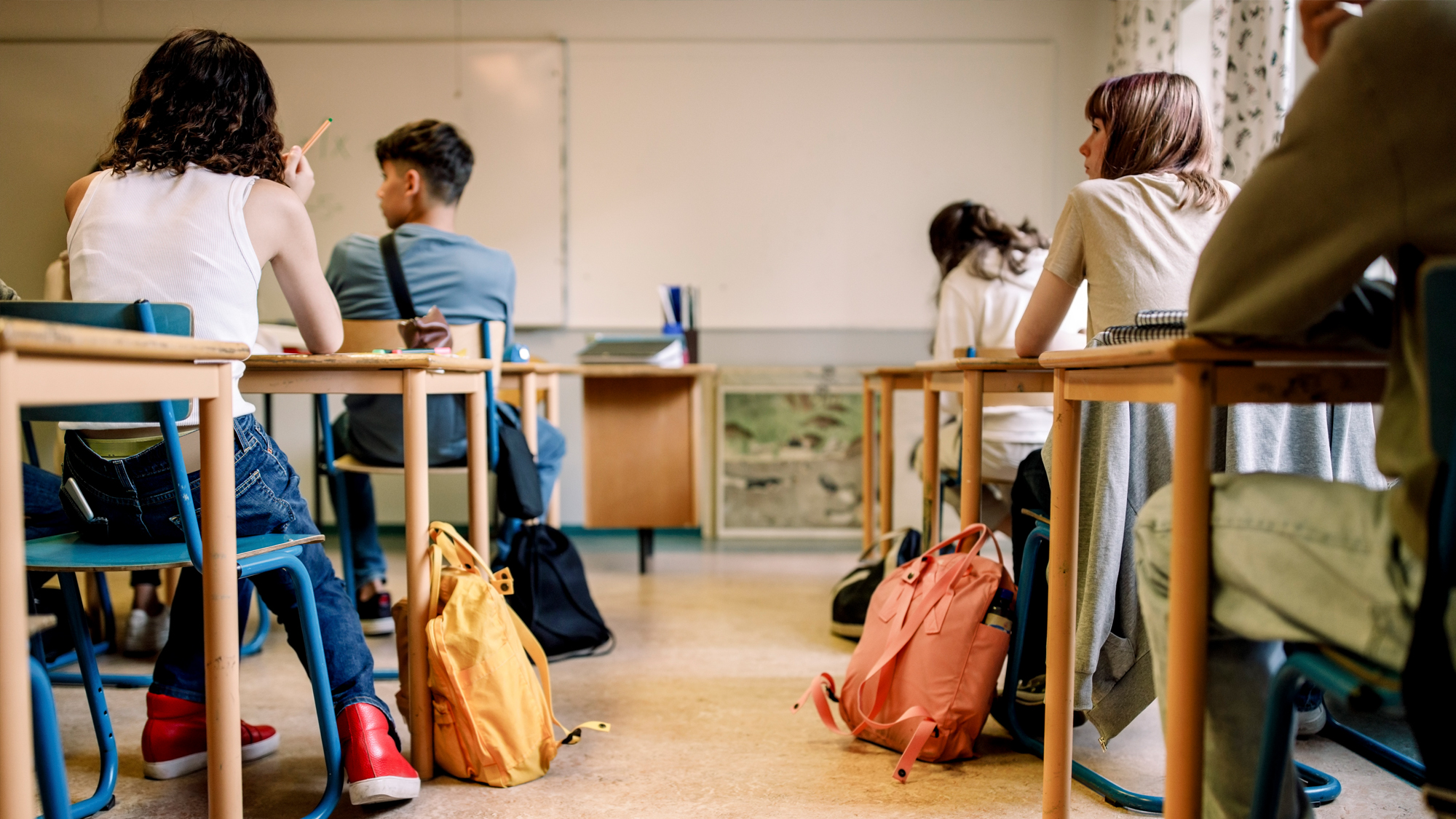The hollow classroom
Remote school let kids down. It will take much more than extra tutoring for kids to recover.


A free daily email with the biggest news stories of the day – and the best features from TheWeek.com
You are now subscribed
Your newsletter sign-up was successful
For a brief period four years ago, when the U.S. first declared a COVID emergency, it seemed like we were suspended in time, with everything rolling to a stop. And then the world resumed — just with all the trends in play moving faster. Whether it was political polarization or the rise of remote work, COVID made the future come sooner. And as it was for the adult world, so it was for schools and kids, only worse. Remote school brought to the forefront the increasing loneliness and confusion of American children and teenagers. The COVID years caused a measurable decline in math and reading scores, what we think of as "pandemic learning loss." But the hours of missed classroom time just scratch the surface of what has been taken away from kids. When COVID hit, we were already seeing falling reading scores worldwide, falling independence, and increasing anxiety. The underlying trend was already there, and COVID made it worse.
It has been well over two years since the overwhelming majority of schools in the U.S. fully reopened, and we still see a doubling of absentee rates. This is not pandemic learning loss. It is a retreat of kids into their homes, into themselves, and most of all into their electronic devices. The signs of trouble are everywhere. The SAT just got rid of long reading passages, one more sign of the decline of attention. At my son's school, the plays the sixth to eighth-graders put on have gotten simpler and shorter because kids are not used to memorizing lines or acting on stage. And in the most troubling data point of all, rates of teen suicide have climbed dramatically. These are not issues that will be solved with a few more hours of time in a classroom. We have been letting our kids down for a long time. COVID just made that clear — hopefully clear enough that we can see how much better we need to do.
This is the editor's letter in the current issue of The Week magazine.
The Week
Escape your echo chamber. Get the facts behind the news, plus analysis from multiple perspectives.

Sign up for The Week's Free Newsletters
From our morning news briefing to a weekly Good News Newsletter, get the best of The Week delivered directly to your inbox.
From our morning news briefing to a weekly Good News Newsletter, get the best of The Week delivered directly to your inbox.
A free daily email with the biggest news stories of the day – and the best features from TheWeek.com
Mark Gimein is a managing editor at the print edition of The Week. His work on business and culture has appeared in Bloomberg, The New Yorker, The New York Times and other outlets. A Russian immigrant, and has lived in the United States since the age of five, and now lives in Brooklyn with his wife and son.
-
 What to know before filing your own taxes for the first time
What to know before filing your own taxes for the first timethe explainer Tackle this financial milestone with confidence
-
 The biggest box office flops of the 21st century
The biggest box office flops of the 21st centuryin depth Unnecessary remakes and turgid, expensive CGI-fests highlight this list of these most notorious box-office losers
-
 What are the best investments for beginners?
What are the best investments for beginners?The Explainer Stocks and ETFs and bonds, oh my
-
 ‘Longevity fixation syndrome’: the allure of eternal youth
‘Longevity fixation syndrome’: the allure of eternal youthIn The Spotlight Obsession with beating biological clock identified as damaging new addiction
-
 Growing a brain in the lab
Growing a brain in the labFeature It's a tiny version of a developing human cerebral cortex
-
 A Nipah virus outbreak in India has brought back Covid-era surveillance
A Nipah virus outbreak in India has brought back Covid-era surveillanceUnder the radar The disease can spread through animals and humans
-
 Trump HHS slashes advised child vaccinations
Trump HHS slashes advised child vaccinationsSpeed Read In a widely condemned move, the CDC will now recommend that children get vaccinated against 11 communicable diseases, not 17
-
 Deaths of children under 5 have gone up for the first time this century
Deaths of children under 5 have gone up for the first time this centuryUnder the radar Poor funding is the culprit
-
 Health: Will Kennedy dismantle U.S. immunization policy?
Health: Will Kennedy dismantle U.S. immunization policy?Feature ‘America’s vaccine playbook is being rewritten by people who don’t believe in them’
-
 Stopping GLP-1s raises complicated questions for pregnancy
Stopping GLP-1s raises complicated questions for pregnancyThe Explainer Stopping the medication could be risky during pregnancy, but there is more to the story to be uncovered
-
 RFK Jr. sets his sights on linking antidepressants to mass violence
RFK Jr. sets his sights on linking antidepressants to mass violenceThe Explainer The health secretary’s crusade to Make America Healthy Again has vital mental health medications on the agenda
